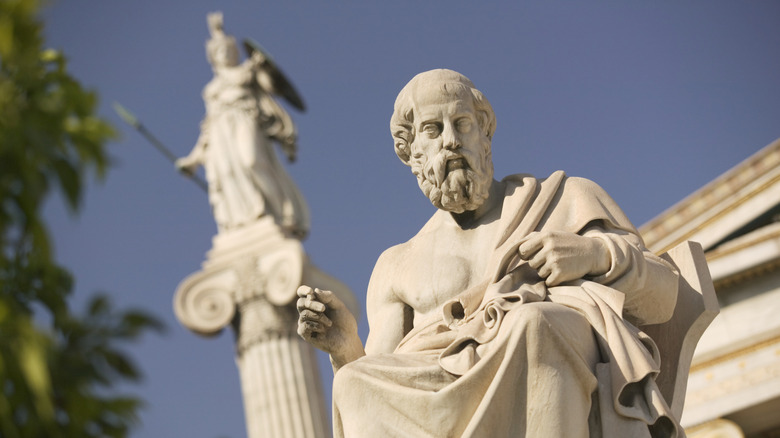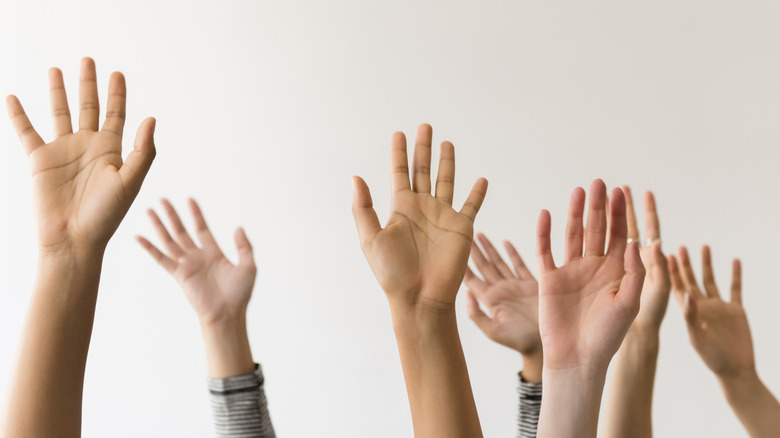Why Showing The Palm Of Your Hand In Greece Is A Big No-No
It's amazing how much we can say with our hands. Thumbs up! Thumbs down. High five! Chef's kiss. We communicate so much with only two hands and 10 fingers — and that's not counting American Sign Language or the 300 other versions of sign language that exist in the world. Add to that the shrugs, nods, shakes, mouth-shapes, raised brows, lid-flutters, and side-eye, and our bodies are basically walking dictionaries of voiceless dialogue.
But physical gestures can mean very different things in different cultures, so much so that a positive motion in one country could be shocking or hurtful in another. A peace sign with two fingers raised is a beautiful symbol, but if you turn your palm toward your face, it becomes a crass insult in the United Kingdom. Thumbs up means "great" or "good job," in America, right? Quite the opposite in Iraq (and many other parts of the Middle East). Pointing of any kind is considered extremely rude in Japan. Indeed, there are many European gestures you should know unless you want to commit a social faux pas. There are only so many ways we can arrange our digits and there are infinite ways to interpret their meaning.
Surprisingly, Greece can be a hotbed of confusion for U.S. visitors. Some of the simplest gestures suggest wildly different things to Greeks than to Americans, which can lead to misunderstandings. The most disrespectful of all and the one you should avoid at all costs is to raise your palm at someone, fingers splayed, the way you might hail a cab or wave a lingering hello.
Why showing your palms is considered an insult in Greece
This code-red insult is called the "moutza" and dates back to ancient Byzantium. Thankfully, there aren't many reasons for travelers to raise an open palm directly at a stranger in Greece, any more than you'd innocently raise a middle finger at a random American. These aren't natural gestures and they even require some effort. Unless you're singing "Stop! In the Name of Love" at a karaoke bar in Thessaloniki — effectively insulting every patron — this isn't a mistake you're likely to make. You might wonder how Greeks solicit volunteers or express their interest in answering a question in the classroom. But to be on the safe side, just don't raise a hand at all, and you won't risk any kerfuffles.
Other Greek gestures diverge from the American norm, as well: If you compliment a chef in Athens and he places a right hand over his heart, you'll probably guess that this means "thank you." Nodding at someone is a coherent greeting, even if Greek nods tend to be more diagonal. But a vertical nod usually indicates "no," the exact opposite of a shaken head, and flicking your wrist (palm down) wouldn't strike most Americans as expressing "What's going on, my friend?"
Major destinations in Greece are well acquainted with tourists; more than 30 million people visited the country in 2023. If you shake your head "no," most Greeks will probably discern your meaning through context. Now, saying the word "malaka"? That might cause some confusion for tourists in Greece.

